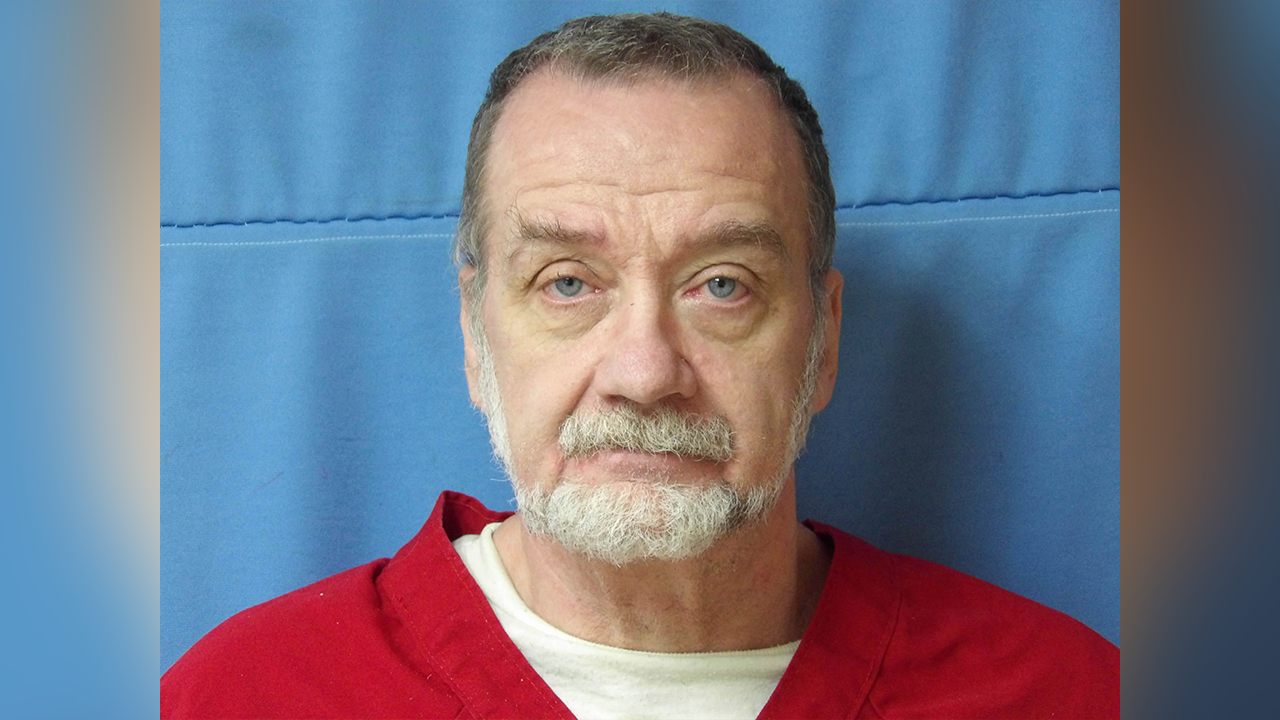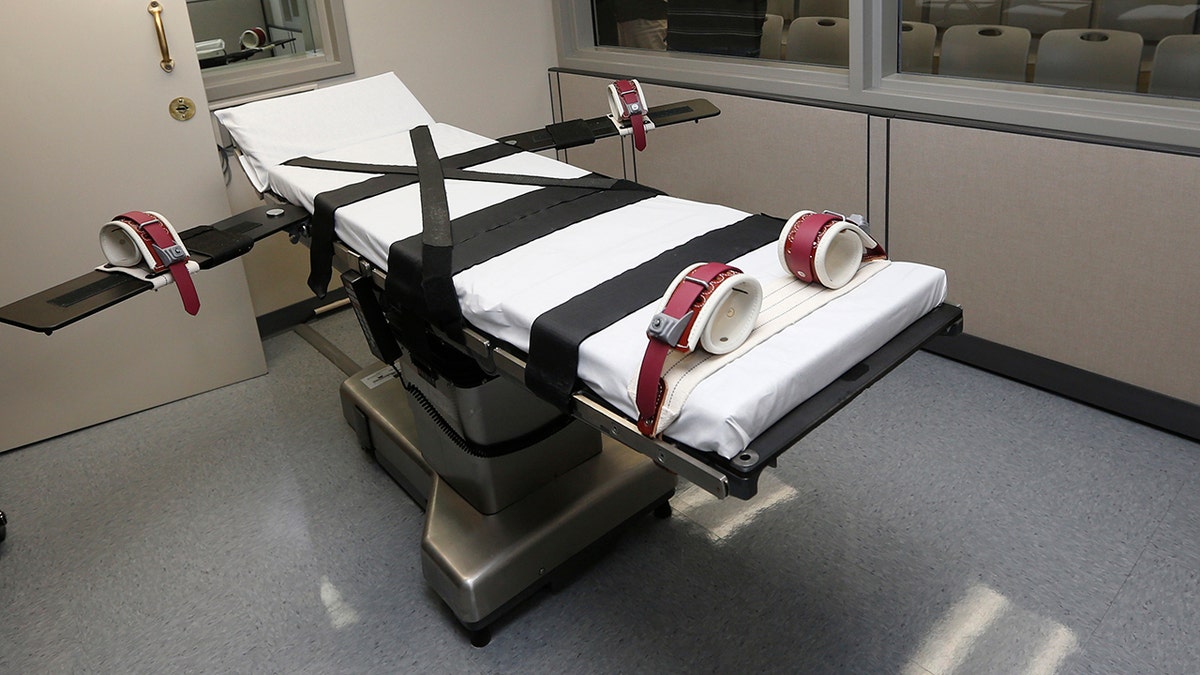Mississippi
At least three Mississippi hospitals aim to end inpatient services, convert to rural emergency status

As the state’s health care crisis persists, four more Mississippi hospitals have applied to become rural emergency hospitals, a federal designation meant to increase their financial viability.
The “rural emergency hospital” designation – a move State Health Officer Dr. Daniel Edney likened to a hospital closure – was rolled out at the beginning of this year. To qualify, hospitals have to end inpatient services and transfer emergency room patients to larger hospitals within 24 hours. In exchange, they get monthly stipends from the federal government and higher insurance reimbursement rates.
If approved, the hospitals – Quitman Community Hospital in Marks, Panola Medical Center in Batesville, Jefferson County Hospital in Fayette and Magee General Hospital – would be some of the first rural emergency hospitals in the country. Just a handful have been approved so far, including Alliance Healthcare System in Holly Springs, according to a database last updated on Aug. 15.
For rural hospitals with an already-small daily census, it can be a lifeline — instead of losing money on what few patients they have, the adjusted reimbursements help them break even or even profit.
However, for the communities with only one hospital, it means the end of inpatient health care and a hospital with little more than an emergency room.
In an interview with Mississippi Today in February, Edney said converting to a rural emergency hospital was basically a closure.
“It’s mainly critical access hospitals that are shifting, and when that happens, you’ve lost the hospital,” he said. “It’s a critical access hospital without the hospital.”
Critical access hospitals — another designation designed to improve hospital finances — are reimbursed by Medicare at a 101% rate, theoretically allowing a 1% profit. However, they must have 25 or fewer inpatient beds, be located 35 miles from another hospital, operate emergency services and transfer or discharge their patients within 96 hours.
In Mississippi, where nearly a half of rural hospitals are at risk of closure, others think the conversion is worth keeping the hospital functionally open.

Quentin Whitwell, an attorney from Oxford, is one of those. He was behind the effort in Holly Springs as co-owner of the hospital, as well as in Georgia where two of the country’s first rural emergency hospitals were approved. He’s also spearheading the change at three of the four hospitals that have applied in recent weeks: Quitman Community Hospital, Panola Medical Center and Jefferson County Hospital.
Whitwell co-owns the Quitman and Panola hospitals and is working as a consultant for Jefferson County Hospital, he said.
The fourth hospital pursuing the designation is Magee General Hospital, led by CEO Gregg Gibbes.
The Centers for Medicare and Medicaid Services, the federal agency primarily responsible for approving these conversions along with the state Health Department, would not comment on pending applications.
While some see the new designation as a last resort for struggling hospitals at the brink of closure, Whitwell views it as a way to streamline services and create a financially successful hospital that serves the specific needs of the community.
“It’s a game changer for a lot of hospitals,” he said. “What we’re trying to do is create a model that makes these hospitals vibrant again.”
Gibbes stressed that hospital leadership at Magee are pursuing the designation as an option – a decision has not yet been made.
“The plan is to exhaust all efforts to make sure that the organization and ultimately health care is delivered in Magee and the surrounding areas,” he said. “Applying for the rural emergency hospital status is so that we can have an option, should we get approved.”
The hospital, which was in bankruptcy when Gibbes took over in 2019, survived the pandemic — but just barely, with the help of COVID-19 relief funds. He said the hospital is essentially breaking even, and hospital leadership wants to make sure, now that those one-time funds that kept them afloat have dried up, that the hospital remains viable for years to come.
The hospital, licensed for 44 beds, has an average daily census of 13 people, Gibbes said. He said that’s why it makes sense to explore the rural emergency hospital designation.
“This is just under consideration,” he said.
Whitwell, who acknowledged he’s become somewhat of the “REH guy” across the country — he recently spoke at a CMS event about the benefits of the designation — is exploring turning more of his hospitals into rural emergency hospitals for a different reason.
“I believe in this model, and I want to help, but I also think that a lot of people are going to miss the mark on it,” he said. “And I want to be the guy that CMS holds up … and says, ‘This is how you do it.’”
In Panola, for example, the hospital is losing money on its psychiatric unit, and he sees the new designation as a way to focus its resources on what the hospital already does well: outpatient services.
“I believe that Panola is going to be probably the most robust REH in the country,” he said. “But we’re definitely losing money right now in psychiatric inpatient services.”
Panola Medical Center, aside from a long-term care facility, is the only hospital in Batesville, a town in north Mississippi with a population of around 7,000, according to the most recent census data.
Over the years, the hospital has shut down different portions of its psych unit – the geriatric psych section is the only part left. If they qualify as an REH, those remaining beds will have to be closed. But hospital leaders stressed that’s a last resort and would only be considered when their application is finalized.
In recent months, St. Dominic closed its behavioral health services unit, which provides inpatient mental health and geriatric psychiatric treatment and was one of the only single point-of-entry hospitals for Hinds Behavioral Health Services for people with mental health issues in the metro area. The following weeks saw consistently full beds at Jackson-area psychiatric units.
While Whitwell recognizes closing those beds will be a loss to the community, he said that it might be the only way to turn the hospital’s finances around.
In the meantime, he’s been pitching legislators on changing certificate of need laws to create a hospital within a hospital in order to keep those beds open.
The Quitman hospital got its letter of approval from CMS on Aug. 31. Once the state Health Department finalizes paperwork on its end, Whitwell said the hospital will begin operating as an REH, retroactively effective Aug. 1.
Aside from a 5-year period in which it was closed, Quitman Community Hospital has been a critical access hospital since January 2004, Whitwell said.
He said Jefferson County Hospital leadership anticipates final approval in the near future and expects to receive its first federal check by October at the latest.

Mississippi
Southeast Mississippi Christmas Parades 2024 | WKRG.com

MISSISSIPPI (WKRG) — It’s beginning to look a lot like Christmas on the Gulf Coast and that means Santa Claus will be heading to town for multiple parades around the area.
WKRG has compiled a list of Christmas parades coming to Southeast Mississippi.
Christmas on the Water — Biloxi
- Dec. 7
- 6 p.m.
- Begins at Biloxi Lighthouse and will go past the Golden Nugget
Lucedale Christmas Parade
Mississippi
‘A Magical Mississippi Christmas’ lights up the Mississippi Aquarium

GULFPORT, Miss. (WLOX) – The Mississippi Aquarium in Gulfport is spreading holiday cheer with a new event, ‘’A Magical Mississippi Christmas.’
The aquarium held a preview Tuesday night.
‘A Magical Mississippi Christmas’ includes a special dolphin presentation, diving elves, and photos with Santa.
The event also includes “A Penguin’s Christmas Wish,” which is a projection map show that follows a penguin through Christmas adventures across Mississippi.
“It’s a really fun event and it’s the first time we really opened up the aquarium at night for the general public, so it’s a chance to come in and see what it’s like in the evening because it’s really spectacular and really beautiful,” said Kurt Allen, Mississippi Aquarium President and CEO.
‘A Magical Mississippi Christmas’ runs from November 29 to December 31.
It will not be open on December 11th, December 24th, and December 25th.
Tickets can be purchased online or at the gate.
The event is made possible by the city of Gulfport and Coca-Cola Bottling Company.
See a spelling or grammar error in this story? Report it to our team HERE.
Copyright 2024 WLOX. All rights reserved.
Mississippi
Mississippi asks for execution date of man convicted in 1993 killing, lawyers plan to appeal case to SCOTUS

Mississippi Attorney General Lynn Fitch, a Republican, is seeking an execution date for a convicted killer who has been on death row for 30 years, but his lawyer argues that the request is premature since the man plans to appeal to the U.S. Supreme Court.
Charles Ray Crawford, 58, was sentenced to death in connection with the 1993 kidnapping and killing of 20-year-old community college student Kristy Ray, according to The Associated Press.
During his 1994 trial, jurors pointed to a past rape conviction as an aggravating circumstance when they issued Crawford’s sentence, but his attorneys said Monday that they are appealing that conviction to the Supreme Court after a lower court ruled against them last week.
Crawford was arrested the day after Ray was kidnapped from her parents’ home and stabbed to death in Tippah County. Crawford told officers he had blacked out and did not remember killing her.
TEXAS LAWMAKER PROPOSES BILL TO ABOLISH DEATH PENALTY IN LONE STAR STATE: ‘I THINK SENTIMENT IS CHANGING’
Mississippi death row inmate Charles Ray Crawford, who was convicted and sentenced to death in 1994 in the 1993 kidnapping and killing of a community college student, 20-year-old Kristy Ray. (Mississippi Department of Corrections via AP)
He was arrested just days before his scheduled trial on a charge of assaulting another woman by hitting her over the head with a hammer.
The trial for the assault charge was delayed several months before he was convicted. In a separate trial, Crawford was found guilty in the rape of a 17-year-old girl who was friends with the victim of the hammer attack. The victims were at the same place during the attacks.
Crawford said he also blacked out during those incidents and did not remember committing the hammer assault or the rape.
During the sentencing portion of Crawford’s capital murder trial in Ray’s death, jurors found the rape conviction to be an “aggravating circumstance” and gave him the death sentence, according to court records.
PRO-TRUMP PRISON WARDEN ASKS BIDEN TO COMMUTE ALL DEATH SENTENCES BEFORE LEAVING

During the sentencing portion of Crawford’s capital murder trial, jurors found his prior rape conviction to be an “aggravating circumstance” and gave him the death sentence. (iStock)
In his latest federal appeal of the rape case, Crawford claimed his previous lawyers provided unconstitutionally ineffective assistance for an insanity defense. He received a mental evaluation at the state hospital, but the trial judge repeatedly refused to allow a psychiatrist or other mental health professional outside the state’s expert to help in Crawford’s defense, court records show.
On Friday, a majority of the 5th U.S. Circuit Court of Appeals rejected Crawford’s appeal.
But the dissenting judges wrote that he received an “inadequately prepared and presented insanity defense” and that “it took years for a qualified physician to conduct a full evaluation of Crawford.” The dissenting judges quoted Dr. Siddhartha Nadkarni, a neurologist who examined Crawford.
“Charles was laboring under such a defect of reason from his seizure disorder that he did not understand the nature and quality of his acts at the time of the crime,” Nadkarni wrote. “He is a severely brain-injured man (corroborated both by history and his neurological examination) who was essentially not present in any useful sense due to epileptic fits at the time of the crime.”

Photo shows the gurney of an execution chamber. (AP Photo/Sue Ogrocki, File)
CLICK HERE TO GET THE FOX NEWS APP
Crawford’s case has already been appealed multiple times using various arguments, which is common in death penalty cases.
Hours after the federal appeals court denied Crawford’s latest appeal, Fitch filed documents urging the state Supreme Court to set a date for Crawford’s execution by lethal injection, claiming that “he has exhausted all state and federal remedies.”
However, the attorneys representing Crawford in the Mississippi Office of Post-Conviction Counsel filed documents on Monday stating that they plan to ask the U.S. Supreme Court to overturn the appeals court’s ruling.
The Associated Press contributed to this report.
-

 Science1 week ago
Science1 week agoTrump nominates Dr. Oz to head Medicare and Medicaid and help take on 'illness industrial complex'
-
/cdn.vox-cdn.com/uploads/chorus_asset/file/25739950/247386_Elon_Musk_Open_AI_CVirginia.jpg)
/cdn.vox-cdn.com/uploads/chorus_asset/file/25739950/247386_Elon_Musk_Open_AI_CVirginia.jpg) Technology1 week ago
Technology1 week agoInside Elon Musk’s messy breakup with OpenAI
-

 Health5 days ago
Health5 days agoHoliday gatherings can lead to stress eating: Try these 5 tips to control it
-

 News1 week ago
News1 week agoThey disagree about a lot, but these singers figure out how to stay in harmony
-

 Health2 days ago
Health2 days agoCheekyMD Offers Needle-Free GLP-1s | Woman's World
-

 Science2 days ago
Science2 days agoDespite warnings from bird flu experts, it's business as usual in California dairy country
-

 Politics1 week ago
Politics1 week agoSize of slim Republican House majority hangs on 5 uncalled races
-

 World1 week ago
World1 week agoBangladesh ex-ministers face ‘massacre’ charges, Hasina probe deadline set




)
![Well Water Test Kit for Drinking Water – Quick and Easy Home Water Testing Kit for Bacteria Nitrate Nitrite pH Manganese & More | Made in The USA in Line with EPA Limits [NO MAILING Required] Well Water Test Kit for Drinking Water – Quick and Easy Home Water Testing Kit for Bacteria Nitrate Nitrite pH Manganese & More | Made in The USA in Line with EPA Limits [NO MAILING Required]](https://newspub.live/wp-content/uploads/2024/11/71zFxEZ3NgL._SL1500_-400x240.jpg)
![Well Water Test Kit for Drinking Water – Quick and Easy Home Water Testing Kit for Bacteria Nitrate Nitrite pH Manganese & More | Made in The USA in Line with EPA Limits [NO MAILING Required] Well Water Test Kit for Drinking Water – Quick and Easy Home Water Testing Kit for Bacteria Nitrate Nitrite pH Manganese & More | Made in The USA in Line with EPA Limits [NO MAILING Required]](https://newspub.live/wp-content/uploads/2024/11/71zFxEZ3NgL._SL1500_-80x80.jpg)









